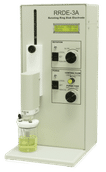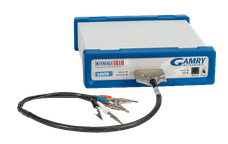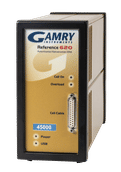Thomson Reuters Predicts Nobel Laureates
Thomson Reuters announced the 2009 Thomson Reuters Citation Laureates - researchers likely to be in contention for Nobel honors - in anticipation of this year's Nobel prize winners in the sciences and in economics to be announced from October 5-12.
Each year, data from ISI Web of Knowledge® is used to quantitatively determine the most influential researchers in the Nobel categories of Physiology or Medicine, Physics, Chemistry, and Economics. These high-impact researchers are named Thomson Reuters Citation Laureates and predicted to be Nobel Prize winners, either this year or in the near future, based on the citation impact of their published research. Since 2002, 15 Citation Laureates have gone on to win Nobel Prizes.
"We choose our Citation Laureates by assessing citation counts and the number of high-impact papers they have produced while identifying discoveries or themes that may be considered worthy of recognition by the Nobel Committee," said David Pendlebury, Citation Analyst at Thomson Reuters. "A strong correlation exists between citations in scientific literature and peer esteem. Professional awards, like the Nobel Prize, are also a reflection of peer esteem."
The 2009 Thomson Reuters Citation Laureates by Nobel Prize category are as follows:
Chemistry
Michael Gratzel (Professor and Director, Laboratory of Photonics and Interfaces, Swiss Federal Institute of Technology (EPFL)) for his invention of dye-sensitized solar cells, now known as Gratzel cells.
Jacqueline K. Barton (Arthur and Marian Hanisch Memorial, Professor of Chemistry and Chair of the Division of Chemistry and Chemical Engineering, California Institute of Technology), Bernd Giese (Professor, Department of Chemistry, University of Basel) and Gary B. Schuster (Provost and Professor, School of Chemistry, Georgia Institute of Technology ) for their pioneering research of electron charge transfer in DNA.
Benjamin List (Professor and Director, Max Planck Institute for Coal Research, and Honorary Professor, University of Cologne) for his development of organic asymmetric catalysis using enamines.
Physiology or Medicine
Elizabeth H. Blackburn (Morris Herztein Professor of Biology and Physiology, Department of Biochemistry and Biophysics, University of California San Francisco), Carol W. Greider (Daniel Nathans Professor and Director, Department of Molecular Biology and Genetics, Johns Hopkins School of Medicine) and Jack W. Szostak (Professor of Genetics, Harvard Medical School and Alexander Rich Distinguished Investigator at Massachusetts General Hospital; also, Howard Hughes Medical Institute Investigator) for their roles in the discovery of and pioneering research on telomeres and telomerases.
James E. Rothman (Wallace Professor of Biomedical Sciences, Professor and Chairman of Cell Biology, Professor of Chemistry, Yale University) and Randy Schekman (Professor of Cell and Developmental Biology, University of California Berkeley; also, Howard Hughes Medical Institute Investigator) for their research on cellular membrane trafficking.
Seiji Ogawa (Director, Ogawa Laboratories for Brain Function Research, Hamano Life Science Research Foundation ) for his fundamental discoveries leading to functional magnetic resonance imaging (fMRI), which has revolutionized basic research in brain science and diagnosis in clinical medicine.
Most read news
Other news from the department people
These products might interest you

Rotating ring disk electrode-3A Rotator by C3 Prozess- und Analysentechnik
Precise rotation and easy electrode change - Discover the innovative Rotator system!

VOLTAMMETRY CELLS by C3 Prozess- und Analysentechnik
Replace many sensing elements with our versatile voltammetry cell for precise measurement results

Interface 1010™ by C3 Prozess- und Analysentechnik
Optimize your electrochemical measurements for precise results and a wide range of applications

Reference 620 by C3 Prozess- und Analysentechnik
Potentiostat / Galvanostat / ZRA with maximum sensitivity and minimum noise for pioneering research

Get the chemical industry in your inbox
By submitting this form you agree that LUMITOS AG will send you the newsletter(s) selected above by email. Your data will not be passed on to third parties. Your data will be stored and processed in accordance with our data protection regulations. LUMITOS may contact you by email for the purpose of advertising or market and opinion surveys. You can revoke your consent at any time without giving reasons to LUMITOS AG, Ernst-Augustin-Str. 2, 12489 Berlin, Germany or by e-mail at revoke@lumitos.com with effect for the future. In addition, each email contains a link to unsubscribe from the corresponding newsletter.





























































